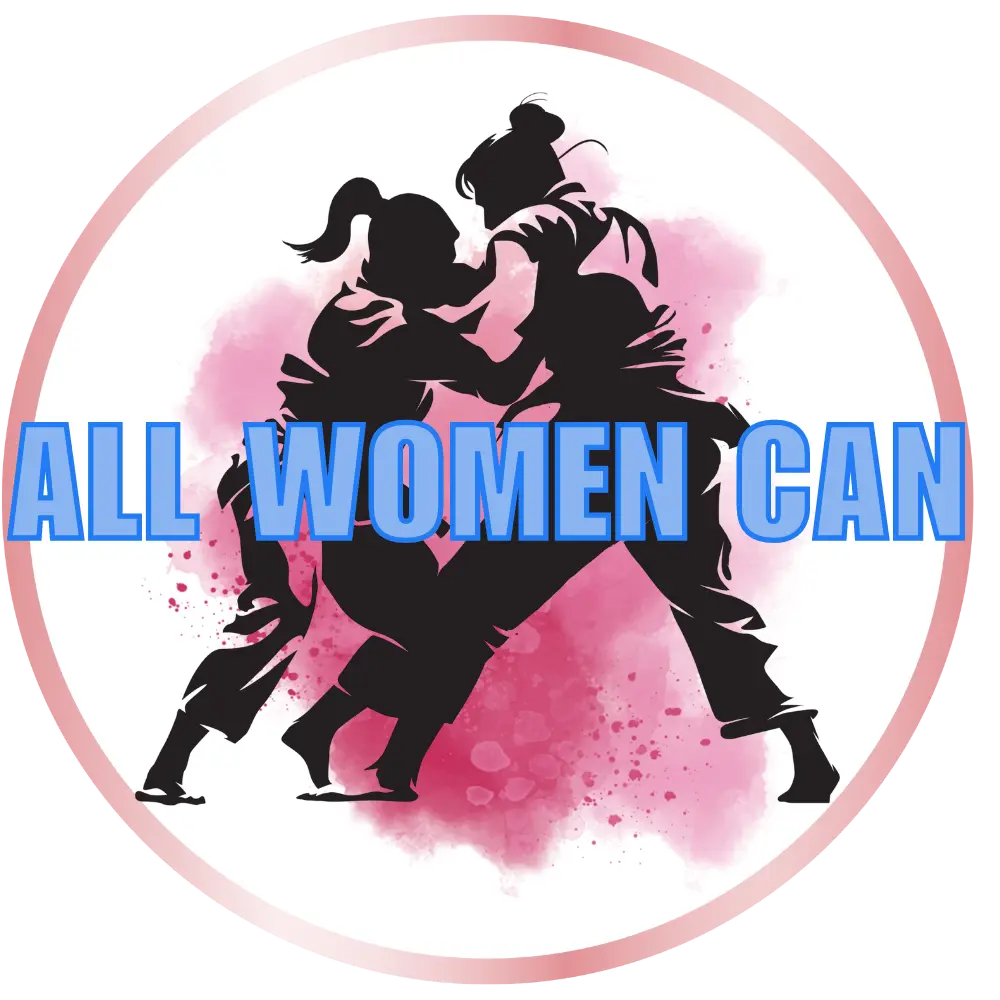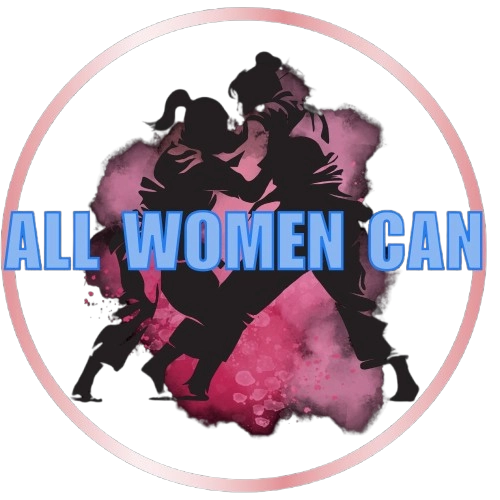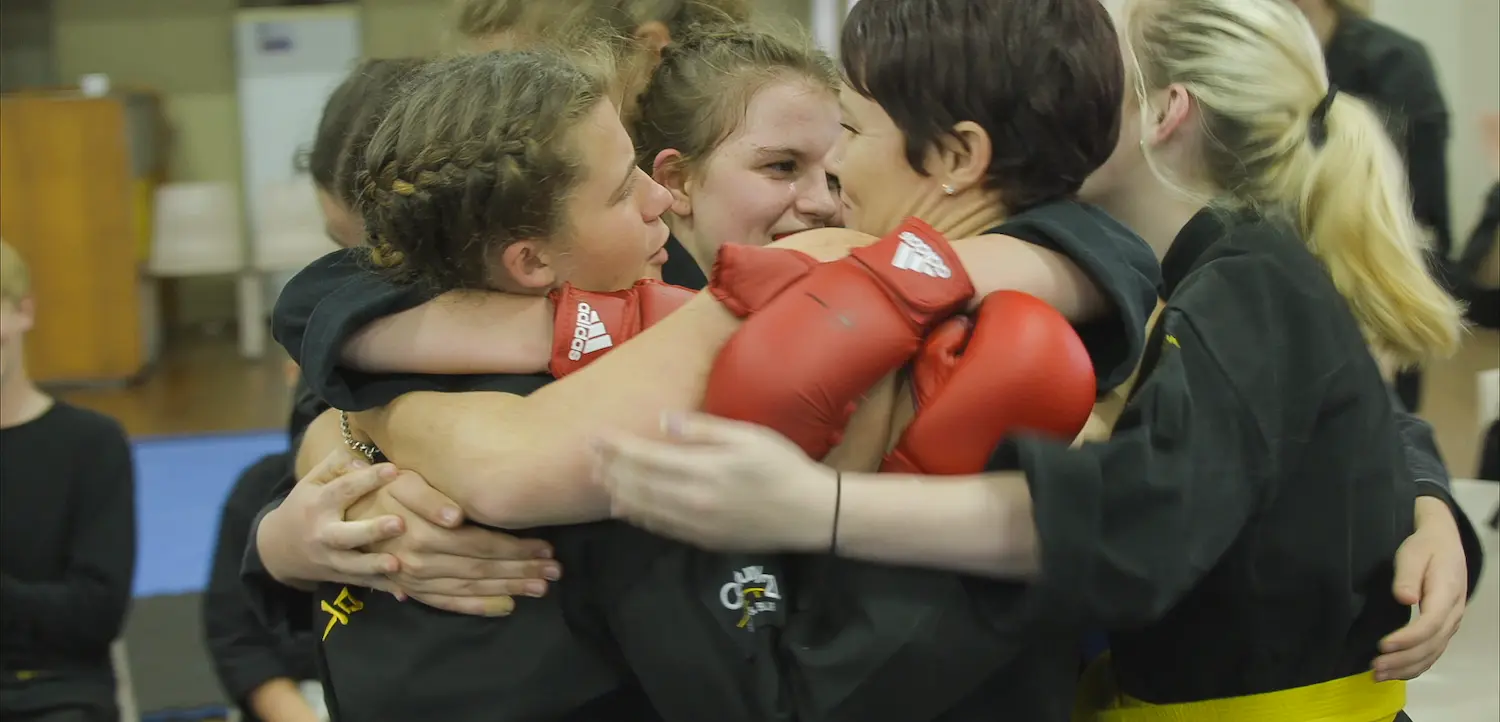As we filmed and interviewed women and girls across all different styles, we asked the same five questions, one of them being “why do you think more women and girls don’t train in martial arts?” and this is what they told us …
Physical Strength or Age:
Women often report not taking up martial arts because of the belief it requires significant physical strength, which many women feel they lack. There is also a common belief that after a certain age it is too hard for women to learn a martial art due to the physical nature of most styles.
The fact is, martial arts can be one of the best choices for women as studies show improved bone strength and density which is vital for women, particularly in menopause!
Judgement
Women report feeling judged about their bodies, including size and shape, when taking up martial arts. They feel they will be judged on their ability to learn the skills, and that they will be “too slow”
There is often a sense they will “hold others back” in the class due to their lack of experience, and a self conscious anxiety that comes from being picked up and thrown by other students ; “I’m way too heavy” is a common belief.
Interest and Preferences, Cultural and Social Norms
Women report choosing other activities or sports, based on stereotypical views about what is “feminine” or socially acceptable for women. Societal expectations or cultural norms also discourage women from engaging in martial arts, reflecting broader stereotypes about gender roles and appropriate activities.
For women who wear Hijabs, there is also a barrier within certain styles where, particularly at the elite level, women are not permitted to wear them. This rule is more often enforced by the authorities within the style who are most often male.
Fear of Injury
Many women have told us they avoid martial arts due to concerns about injury or the perceived risk of physical contact, and many women do get put off training after being thrown too hard or hit too hard by a (often male) training partner.
Women are often more cautious or risk-averse, and there’s nothing wrong with that. What is needed is training to be provided in a way that is friendly and safe for women.
Childcare
Many women are the main carers for their children, elderly parents, the household. They cannot leave kids home alone to go and do their training. Child minding can be a real barrier to getting to training and prioritising self over family commitments.
Lack of Female Role Models
The lack of visible female role models in martial arts does dissuade women from participating, as they might not see many women in leadership or prominent roles within the sport. Many report the advertising and promotional materials surrounding martial arts as being male dominated and focused, leaving women feeling like they will not be a good fit.
Training Environment
Women report avoiding martial arts due to training environments that are unsupportive or unwelcoming, especially if they are dominated by male practitioners.
Women report feeling intimidated by the competitive or aggressive nature of martial arts, and finding the environment less welcoming or less willing to be flexible to accomodate the needs of women.
Women also feel uncomfortable when gendered language is used, particularly in a way that is denigrating and insulting to women ; “you hit like a girl” or “girl push ups” are two examples of how language can create a barrier that leaves women out.
Self-Defense Motivation
It’s often assumed that women might only be interested in martial arts for self-defense purposes, rather than for the sport or personal growth aspects. Women don’t have to just want to do martial arts for safety. They might want to do it for fitness, bone strength, feel like a super hero, or any reason at all. Always making it about assault, or safety, can feel othering, when a woman may simply just want to hit things hard because she can – just like the guys.
Not just about self-defence
Many women are frustrated by the assumption that they’re training primarily for self-defense. Many also reported that there was an assumption as soon as they stepped into the dojo that they were there to protect themselves, and every lesson and exchange became geared around that message, when the women just wanted to train like everyone else. It made them feel in some cases like they were considered weaker, or unable to be invested in just training for fitness, sport, strength or even to be competitive.
Physical and/or Neurodivergent barriers to training
Most traditional martial arts spaces are designed with the assumption that participants have typical physical and cognitive abilities. This can create barriers for women and girls with disabilities who may need modifications to techniques, class structures, or the training environment itself. It can also create barriers for those who are neurodivergent
For many with physical disabilities, access issues like non-adapted equipment, unsuitable training spaces (e.g., lack of ramps, accessible toilets), or instructors who aren’t trained to adapt techniques can make martial arts training inaccessible. Moreover, instructors and schools often lack training on how to create inclusive spaces for neurodivergences like ADHD or autism, which may require different learning or communication styles. For example, loud environments, sensory overload, or fast-paced classes can be overwhelming for neurodivergent individuals


